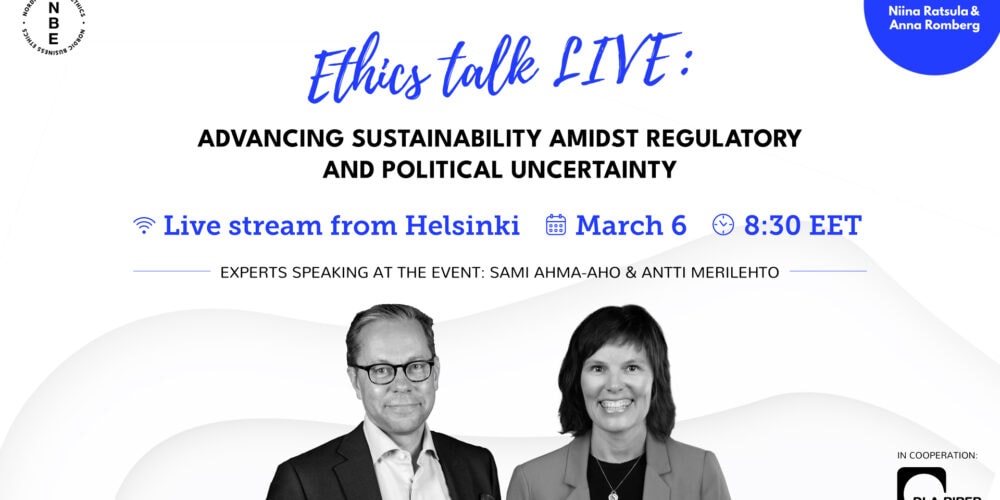EthicsTalk LIVE: From soft law to hard law
This blogpost summarises the key takeaways from the EthicsTalk LIVE: From soft law to hard law on March 1st, 2024. The panelists included Heidi Hautala, the vice president of the European Parliament and the member of the European Parliament and Salla Tuominen, a partner at DLA Piper. More information on the panelists on the event page.
Unexpected twist
The future of the CSDDD is currently uncertain. The final draft of the directive has recently suffered a setback as several member states indicated that they have challenges in supporting it and would abstain from the vote. Earlier this week the directive proposal got blocked as some 13 EU members abstained and one country voted against it. Heidi pointed out that, even though an agreement was reached in December 2023, these member states are worried for example about excessive burden on the companies or that their own national legislation that does not fit with the requirements of the directive. She also noted that there is still about two weeks to the final session (March 15th, 2024) that will decide the near future of the CSDDD. Negotiations are currently being held to see what could be done.
Regardless of the vote, it is clearly time to walk the talk.
-Salla Tuominen
If the CSDDD is not approved this spring, there is a suspicion that the EU election might alter the composition of the decision-making bodies, potentially eliminating any support for the CSDDD. If this happens, it is highly unlikely that the current requirements of the directive will be approved, and we should anticipate reductions in corporate liability in the field of sustainability.
Not just opposition
While politics are at play, it’s important to note that many companies are in favor of the CSDDD. This suggests that the aspiration for corporate sustainability is far from extinguished. As Salla highlighted, the CSDDD isn’t introducing anything new. These concepts and expectations have been present in the soft law since the 1970s, as demonstrated by the OECD Guidelines for Multinational Enterprises on Responsible Business Conduct and the UN’s guiding principle on business and human rights.
Salla raised a valid point, highlighting the legislative challenges faced by large multinational corporations. These companies often have to navigate and comply with a myriad of different laws across various jurisdictions, which can indeed be a complex and daunting task. This not only raises administrative costs, but also demands significant time and resources. These companies would actually benefit from the CSDDD as it would reduce the administrative burden.
Leveling the playing field
The key difference that the transition from soft law to hard law would bring is leveling the playing field for companies. At present, there’s no set minimum standard that companies are required to meet. This means that companies who do less for people and the planet could potentially gain an advantage over those who do more – even though this is not black and white anymore. However, it’s worth noting that many companies have already made significant strides in sustainability. Therefore, the future of corporate sustainability isn’t solely reliant on the outcome of the CSDDD.
Heidi highlighted that companies are more ready than the politicians to do more on sustainability. Salla concluded that regardless of the vote, it is clearly time to walk the talk.
If you want more of the same topic, make sure you watch the webinar recording from Nordic Business Ethics’ YouTube channel.



